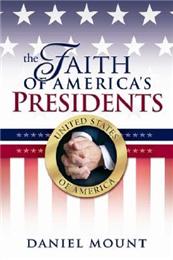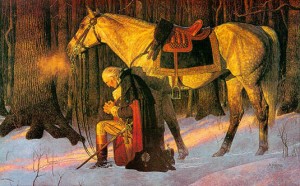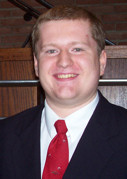 The Faith of America’s Presidents is a book written by Daniel J. Mount. Here is an exclusive interview with the author:
The Faith of America’s Presidents is a book written by Daniel J. Mount. Here is an exclusive interview with the author:
Israel Wayne: Can you explain the difference between a Christian, a Theist and a Deist?
Daniel Mount: I’d be happy to. In fact, that’s a good question to start with. When we discuss this topic, it is really easy to talk past one another unless we start out by defining our terms. In particular, there are several different definitions used for the term “Christian” in American culture. Properly used, the term denotes one who has accepted Christ as his Lord and Savior, and one who accepts the basic, foundational teachings of the Christian faith. However, the term is also used in our culture to denote one who attends a Christian church, at least on occasion, and would identify himself as a Christian instead of a Jew, Muslim, or Hindu. While I’d love to reclaim the term “Christian” to its proper meaning and use it without qualifier, in recognition of the inroads the second definition has made in our culture, at times in the book I use the term “orthodox Christian” in its place. When people ask if our earliest presidents were deists, they’re often working from a similarly careless definition of the term. While pop culture historians might use the term “deist” to signify anyone who was not an orthodox Christian during the 1700s and early 1800s, that view is erroneous. A deist is someone who believes that God set the universe in motion but left it by itself to run itself. A deist believes that there is no way to supersede the laws of nature, that all history was determined at Creation, and that humans are just a part of the clockwork of the universe. Under that definition, none of our early presidents was a deist. But while some were indeed orthodox Christians, others were not; to define these, we use a third term, “theist.” A theist is someone who believes that God created the universe and remains actively involved in it. All Christians are (or ought to be) theists, but not all theists are Christians.
Israel Wayne: Why do you think so many of the American presidents claim to be Christians, even when they were not openly religious in any way?
Daniel Mount: Whether or not the secular left likes to admit it, America was a Christian society. Enough Americans were Christians that it was expected that our elective leaders would be Christians.
Israel Wayne: Can you name a few presidents who were very vocal about professing faith in Christ?
Daniel Mount: James Buchanan, James Garfield, William McKinley, Ronald Reagan, George W. Bush.
Israel Wayne: Have any presidents made strong statements about the importance of faith in how men govern nations?
Daniel Mount: Yes. As one example, John Adams said in a 1798 national call to prayer:
As the safety and prosperity of nations ultimately and essentially depend on the protection and the blessing of Almighty God, and the national acknowledgment of this truth is not only an indispensable duty which the people owe to Him, but a duty whose natural influence is favorable to the promotion of that morality and piety without which social happiness can not exist nor the blessings of a free government be enjoyed; and as this duty, at all times incumbent, is so especially in seasons of difficulty or of danger, when existing or threatening calamities, the just judgments of God against prevalent iniquity, are a loud call to repentance and reformation; and as the United States of America are at present placed in a hazardous and afflictive situation by the unfriendly disposition, conduct, and demands of a foreign power, evinced by repeated refusals to receive our messengers of reconciliation and peace, by depredation on our commerce, and the infliction of injuries on very many of our fellow-citizens while engaged in their lawful business on the seas–under these considerations it has appeared to me that the duty of imploring the mercy and benediction of Heaven on our country demands at this time a special attention from its inhabitants.
Israel Wayne: Who are a couple of your favorite presidents? Why?
Daniel Mount: James Garfield—Garfield was the only preacher to become President. I admire his zeal for the Lord in his youth. He would preach at several churches every Sunday, and also preached at Disciples of Christ camp-meetings. Calvin Coolidge—You just have to admire someone who never used a word more than he had to and still managed to become president!
Israel Wayne: Do we have examples of presidents who became more committed to their faith once they were in the White House?
Daniel Mount: Two that come to mind are Abraham Lincoln and Dwight D. Eisenhower. Lincoln became more privately committed to the faith during his presidency. While it’s disputed whether he became a Christian before his death (I’m inclined to think he did), the pressure of the Civil War and the 1863 death of his son definitely caused him to draw closer to God. Eisenhower became more publicly committed to the faith. Though he did not want to join a church and make a public profession of faith in Christ during his presidential campaign, lest it was said he did it for political effect, he did it once he had won. He told Billy Graham that he believed America was a Christian nation and wanted a Christian leader.
Israel Wayne: When you wrote your book, what methods did you follow to make sure that you were being objective and not bringing a wrong bias to your writing?
Daniel Mount: I set myself a rule at the start: Tell the truth. It is easy to fall into the temptation to selectively present evidence to portray a president as more, or less, religious than he really was. Several previous books on the topic fall into this trap, in one direction or the other. I went back to original source material to the greatest extent possible, and read interpretations from liberal, conservative, and moderate perspectives in an attempt to present as balanced and accurate an account as possible.
Israel Wayne: Why is it important to know about the connection between faith and leaders in American history?
These forty-two men have shaped our history. Studying their faith gives a window into one of the biggest factors that shaped them. To give just two specific examples: William McKinley’s missionary zeal played into his expansionist policies, particularly in regard to the Philippines. Granted, I think his specific policy application may have been a little misplaced, as guns are rarely the most efficient method of spreading the Gospel, but I have to give him credit for good intentions. Another specific example is that the faith of Ronald Reagan and George W. Bush has shaped the pro-life positions they’ve taken on the abortion issue.
To order your copy of The Faith of America’s Presidents, visit ChristianBook.com
To learn more about Daniel Mount, visit: www.DanielMount.com
